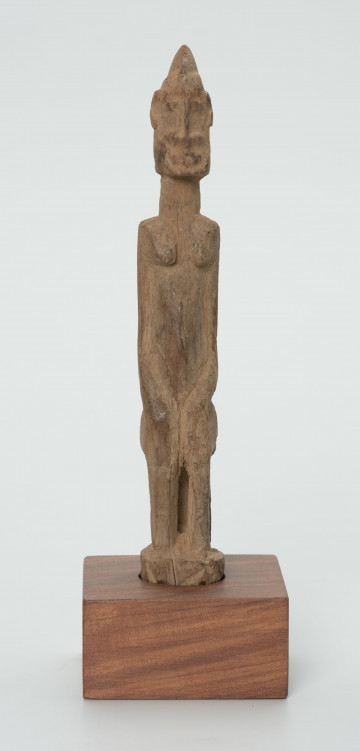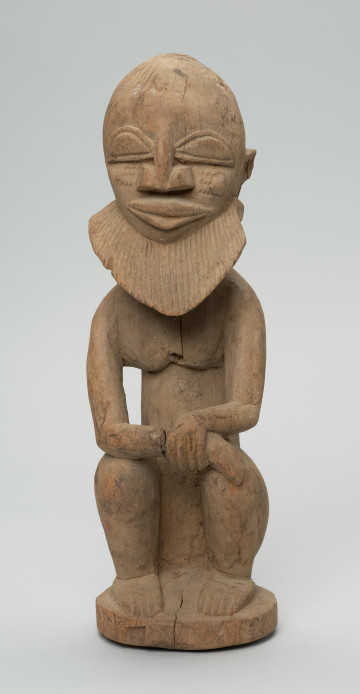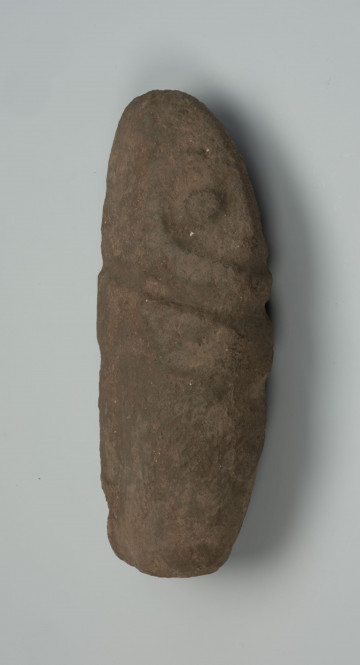
Figurine - ancestor
między 1901 — 1950
National Museum in Szczecin
Part of the collection: Collection of Dogonian art
The Bandiagara Escarpment, one of the most phenomenal places in West Africa, is the modern homeland of the Dogon. It is a long chain located in Mali in the Mopti region, stretching from south to north-east for 200 km, parallel to the Niger River. A small part of the south-western edge of the cliffs is in Burkina Faso. The Bandiagara Escarpment can be distinguished by a plateau, a vertical escarpment with a debris flow of stones at the foot, and plains (Gondo, Seno). The plateau's powerful surface is made up of a slab of rock formed from sandstone containing large amounts of iron and obscured in places by clayey yellow sand. The edge of the plateau is almost vertical in places, jaggedly interrupted by numerous rocky outcrops and steep crevasses that allow communication between the plateau and the foothills, with huge rock blocks that have eroded away from the vertical walls and numerous stones and boulders. The massive rock blocks separated by narrow gorges and criss-crossed by caves make access to the Dogon villages difficult and although the centre of the Dogon country is only about 170 km from the old trading town of Djenne, travellers visiting the Dogon country since the beginning of the 20th century have emphasised the feeling of isolation. According to oral tradition, the Dogon chose to settle among the steep rocks of the Bandiagara Escarpment precisely because of their inaccessibility. Narrow gorges, rock blocks and boulders provided shelter from attacks by neighbouring peoples, which over the past five hundred years have included the Mossi, Songhai and Fula.The isolation of the Dogon also influenced the development of original art, untainted by any influence, which delights many artists, intellectuals and collectors today.
Ewa Prądzyńska
Author / creator
Dimensions
cały obiekt: height: 49 cm
Object type
sculpture
Creation time / dating
Creation / finding place
Identification number
Location / status

między 1901 — 1950
National Museum in Szczecin

między 1951 — 2000
National Museum in Szczecin

między 1951 — 2000
National Museum in Szczecin
DISCOVER this TOPIC
National Museum in Lublin
DISCOVER this PATH
Educational path